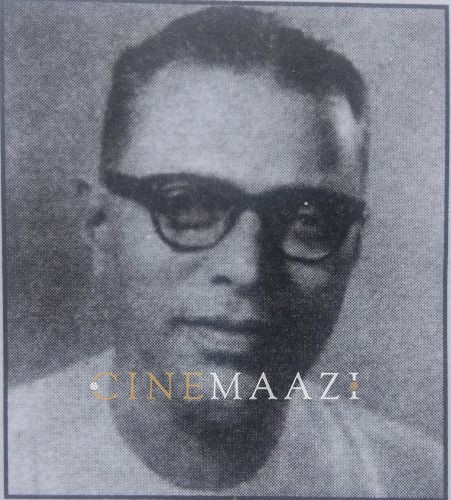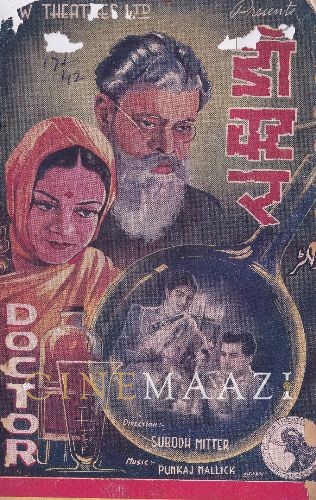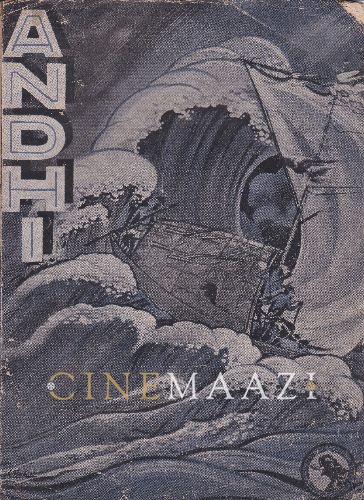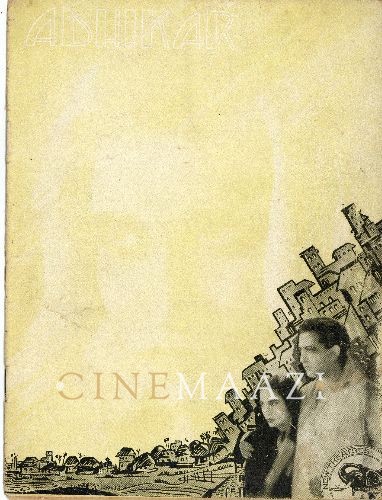Pankaj Mullick

Subscribe to read full article
This section is for paid subscribers only. Our subscription is only $37/- for one full year.
You get unlimited access to all paid section and features on the website with this subscription.
Not ready for a full subscription?
You can access this article for $2 , and have it saved to your account for one year.
- Real Name: Pankaj Kumar Mullick
- Born: 10/05/1905 (Calcutta)
- Died: 19/02/1978 (Calcutta)
- Primary Cinema: Bengali
- Parents: Monimohan Mullick, Monomohini
Pankaj Mullick was born on 10 May 1905 in Calcutta into a middle class family. He developed an early interest in music, and used to practice on his neighbour’s harmonium in secret. He was later trained under the tutelage of Durgadas Bandhopadhyay, Laxmibai Mittar and Dinendranath Tagore. Due to his father’s demise and the declining finances of the family, he could not complete his college degree. However, he continued his training in music.
In 1926, Pankaj Mullick made his first commercial recording with the Vielophone Company. With the song Nemechhe aaj prothom badal he met various directors, music composers and singers, including R.C. Boral, who helped him along in his career. When the India Broadcasting Corporation was launched in 1927, Pankaj Mullick and R.C. Boral were enlisted as early employees. Mullick worked there for four years, and during this time, he produced Sangeet Shikshar Ashar, a program aimed at popularizing Rabindra sangeet among the Bengali audience of the show.
Pankaj Mullick and R.C. Boral also arranged music and conducted the orchestra for the silent films Chashar Meye (1931) and Chorkanta (1931) at the Chitra Cinema hall. Mullick also played a walk-on part in the former. Both the films were produced by International Film Craft, a company run by B N Sircar. Impressed with Mullick, Sircar asked him to join his new film company, New Theatres. Along with R.C. Boral, Pankaj Mullick composed the music for the first Bengali talkie Dena Paona (1931). He made his debut as an independent composer with the Hindi film Yahudi Ki Ladki (1933), a New Theatres costume drama directed by Premankur Atorthy. Pankaj Mullick was known for innovating with western musical forms and instruments like the piano and accordion when composing music for films. His use of background music to enhance the mood, action and tempo of the scenes onscreen set the template for the form Indian film music was to take in the years to come.
In 1935, Mullick and Boral composed the music for the New Theatres production Bhagyachakra (1935), the Hindi version of which was named Dhoop Chhaon. During the shoot of this film, Nitin Bose along with his sound and music team recorded the song beforehand and asked the performers to lip-synch during the shoot, thus introducing the technique of playback. The song they recorded was Mora pulakjachhi (Main khush hone chahun in Hindi), voiced by Suprabha Sircar, Parul Ghosh and Umasashi. He continued his partnership with R.C. Boral with films like the classic Devdas (1935), Maya (1936), in which his song Sundar nari pritam pyari became a runaway hit, The Millionaire/Karodpati (1936), Grihadah/Manzil (1936) and Didi/President (1937).
Pankaj Mullick made his debut as an independent music-director in Bengali cinema as well as an actor with P.C. Barua’s Mukti (1937). He played an impoverished philosopher-singer. The success of Mukti ensured that he appeared again in the Hindi version of the film, titled Kapal Kundala (1939). Directed by Phani Majumdar, the film also featured the song Piyan Milan kojaana sung and composed by Pankaj Mullick. Soon after, for Debaki Bose’s musical Nartaki (1940), he sang the evergreen hits Ye kaun aaj aaya savere savere, Mad bhari ruth jawaan hai and Prem kanaata chhuta. Pankaj Mullick’s unique composition and orchestration also came in for praise with the songs in the K.L. Saigal-Pahadi Sanyal starrer Zindagi (1940). The film featured the famous Saigal song Sojaa rajkumari, so jaa.
In 1941, Pankaj Mullick was cast in the Subodh Mitra directed Doctor (1941). Mullick played a rich man’s son, a doctor by profession who stays back in a village to form an outbreak of cholera. After the Second World War, people started moving to Bombay to look for work, as production houses like New Theatres went into a decline. Mullick, however, stayed in Calcutta and continued composing music for the screen. In 1944, he wrote the music for New Theatres’ Meri Bahen (1944), which had Saigal voicing Do naina matwaare tihare hum pe zulm kare, Chhupana ae pyari nazariya and Abqatil-e-taqdeer mujhe itna bata. He continued to work in films like Meenakshi (1942), Kashinath (1943), Dui Purush (1945), Nurse Didi/Nurse Sissy (1947), Ramer Sumati (1947), Pratibad (1948),Rupkatha/ Roop Kahini (1950), Mahaprashthaner Pathey (1952), Banahansi(1953), Nabin Yatra/ Yatrik (1952), Rai Kamal (1955), Chitrangada (1955), Louhakapat (1957) and Ahwan (1961).
Pankaj Mullick also worked as a music director in some Bombay productions like Zalzala (1952), directed by Paul Zils and starring Geeta Bali, and Kasturi (1954). The last film he composed music for the film Bigalito Karuna Janhabi Jamuna (1972).
Pankaj Mullick won the Bengal Film Journalists Association (BFJA) award for his work as the music director for Dui Purush. His music for Yatrik (1952) and Rai Kamal (1955) were honoured with the National Award for best music. A scholar and an outstanding music theoretician, Pankaj Mullick was honoured with the Padmashri in 1970. For his contribution to Indian film music, he was felicitated with the Dada SahebPhalke Award in 1973. Over his 38-year long career, Pankaj Mullick worked at New Theatres for 25 years, and worked with artists like K.L. Saigal, S.D. Burman, Geeta Dutt and Kanan Devi. He passed away on 19 February 1978 in Calcutta.
References
Image courtesy: Telegraph India












.jpg)



